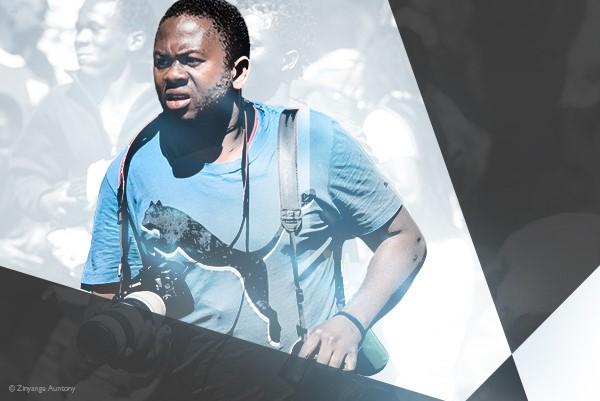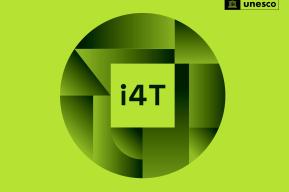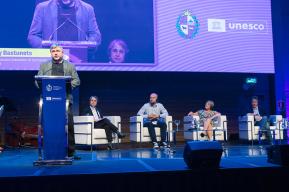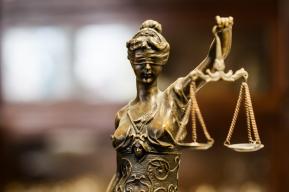Article
An alert, a simple alert that a journalist has been either harassed or arrested makes the difference between life and death

The African Digital Platform on Promoting Journalism and Safety of Journalists – the first of its kind in Africa - was launched on 29 January 2021. It aims at promoting journalists’ safety in Africa and end to impunity on crimes against them, through real time monitoring, reporting and follow-up actions by both the duty and right bearers. The platform was triggered by a steering committee under the leadership of the African Editors Forum (TAEF) and UNESCO. It aim at enabling a safer environment for the media to operate within the Member States of the African Union (AU) .
The Platform is chaired by African media stakeholders, and is an example of how media organizations from different countries can build a partnership and take collective actions across the continent to raise awareness on the dangers that journalists and the media generally face in Africa.
UNESCO: What do you think have been the main achievements in the last 10 years to protect journalists and end impunity in Africa? What have been the challenges and opportunities?
Jovial Rantao: I think the biggest achievement from the point of view of the African Editors Forum has been the formation of partnerships across the continent and around the world to raise awareness on the dangers that journalists and the media generally face in Africa and elsewhere in the world. It is only when nations across Africa are aware of what is happening to journalists that impunity can stop, and that journalists can be protected by the very same communities that they serve by providing information to help them make decisions about their lives.
Media freedom in Africa, and I think in other parts of the world, is a matter of life and death. So, the big lesson for me and for the African Editors Forum is that these partnerships must translate into concrete actions. For this to be done, projects need to be implemented and managed properly so that we can save lives and save journalism, as well as make sure that the citizens of our countries and the citizens of the world get information that is entirely true.
Things must not just end up with beautiful speeches at a launch. Measures need to be put in place to make sure that things actually happen.
UNESCO: Why are monitoring and reporting mechanisms like the continental platform so important in Africa, and to what extent can they contribute to ensuring the safety of journalists and ending impunity for crimes against them?
J.R. : An alert, a simple alert that a journalist has been either harassed or arrested is the difference between saving a life, saving the truth, and death. This is important because in some African countries, authorities believe they can just get away with harassing the media and detaining people, without anybody knowing. If the country, the continent, the world, do not know that someone has been taken by authorities, they can do whatever they want in secret.
This is why the African Editors Forum works with journalism structures in each country to make sure that people understand what the platform does and the importance of an alert in every community.
Once people understand the importance of creating awareness around what is happening in their locality, a safety net can be developed.
We are training people on this and slowly the safety net is increasing across the continent. The next logical step is to make sure that state actors are held accountable at the African Union level.
UNESCO: What innovations does the African Digital Platform for the Safety of Journalists introduce in the prevention, monitoring and processing of attacks against journalists in Africa that were not done before? What can be done to strengthen the platform? How can it be used as a clearinghouse for different partners who are compiling reports on violations?
J.R. : The platform is the first of its kind on the continent. What is innovative about it is that we have used the information of the African Editors Forum as a basis and worked with other partner organizations to create a network. We have established and continue to grow this network of journalists across the continent, in what we could call a “network of solidarity”. This means that if journalists in Somalia know they have brothers and sisters in Ethiopia, in South Africa, in Botswana, the whole country, the whole continent and the whole world will know if something happens to them.
We have worked quite a lot with our partners in the European Union as well. We are developing a partnership with the IPI, with the aim of identifying better ways to use technological advancements, enhancements to make the platform more active, and to make sure that we use this new technological revolution to make it better for the journalists to do their work and to make them safer.
One important thing that we have done is to put in place quality control measures to make sure that when an alert is published, that alert is legit and is quality-checked and legally checked and so on. That way, our partners have the same responsibility to make sure that if an alert is sent, they have to do their own homework on it. Our plan is that we will then take the alerts and send them over to the office of the African Union Rapporteur on Freedom of Expression and Human Rights, where they will be processed.
UNESCO: How has the UN Plan of Action helped in establishing these protection mechanisms, and in what other ways has it helped to establish the issues of the protection of press freedom and of journalists as priorities for African governments?
J.R. : The UN Plan of Action has been very helpful for journalists on the African continent. First, because throughout the structures of the UN like UNESCO, there is real action. There is real activity to help journalists, to empower them with skills and knowledge, to enable them to do their work better, and to develop their capacities to do their work and deal with issues like safety. In many of our countries, capacities are a big issue. Both capacities in terms of doing their work, but also in terms of the ability to then implement a platform like the Digital platform.
I don’t think it was an accident that the 2021 conference was held in Windhoek, and I don’t think that the kind of support that some African governments and heads of state have given to media freedom would have been there without the support from the UN, in terms of compliance with the UN Plan of Action.
UNESCO: Based on the pan-African cooperation that this platform has shown, what kind of coalition, and involving which stakeholders, would you recommend to implement it across the continent? What role would you recommend other international partners play, besides funding?
J.R. : The platform itself is based on a multistakeholder approach. We have around a dozen partners working with us, so from the start we recognized the importance of the platform not only being owned by the African Editors Forum or the journalists but being owned by Africans across different sectors.
Therefore, it is very important to find likeminded stakeholders and to work with them to advocate for total freedom, which means that the media in all countries should be able to work and to publish the truth without fear of favor. We have already worked with organizations concerned with violations and the protection of human rights. We need to strengthen this aspect. Solidarity and working together through partnerships are the only way to make sure that we are stronger. We fight better when we are together. Funding is important, but there is capacity building and other types of efforts such as skills transfers, which are very important.
Jovial Rantao
Chairperson of the African Editors Forum (AEF)
Jovial Rantao is Chairperson of the African Editors Forum (AEF). He also works as a journalist in South Africa. He has spent much of his journalistic career at The Star, where he has held the posts of deputy editor, content and executive editor, news editor, political editor and political correspondent. He has also held the post of editor of the Sunday Tribune, the editor of The Sunday Independent and founder-editor of the African Independent. He has also co-authored a book called Life and Times of Thabo Mbeki with Adrian Hadland, the former political editor of the Cape Argus.









